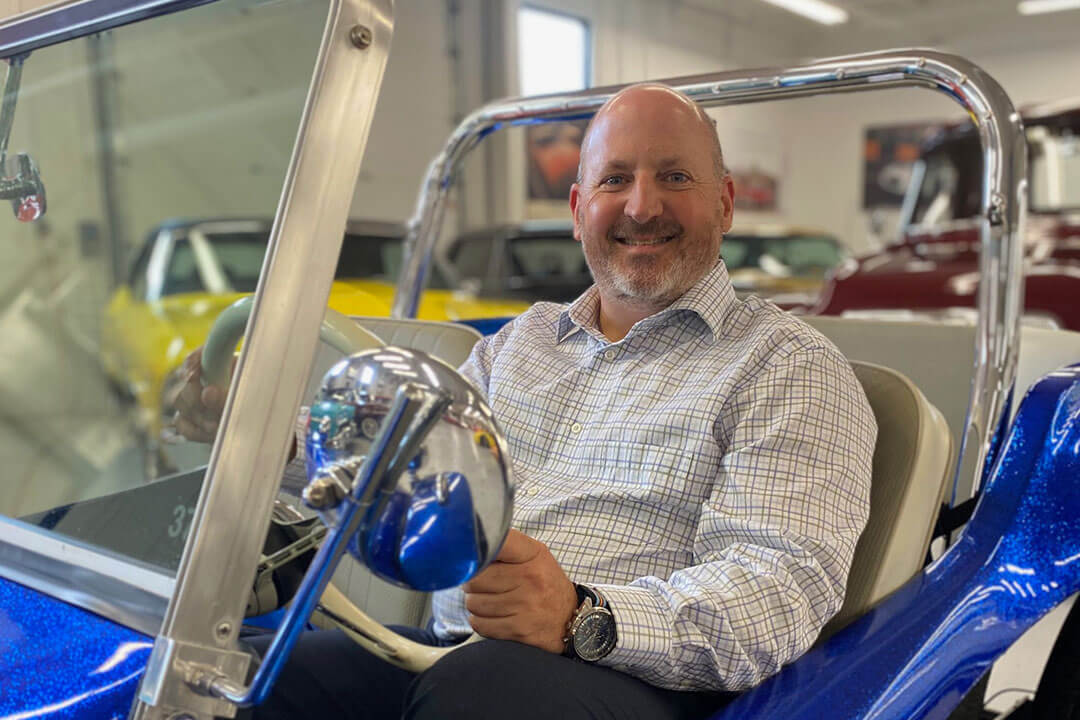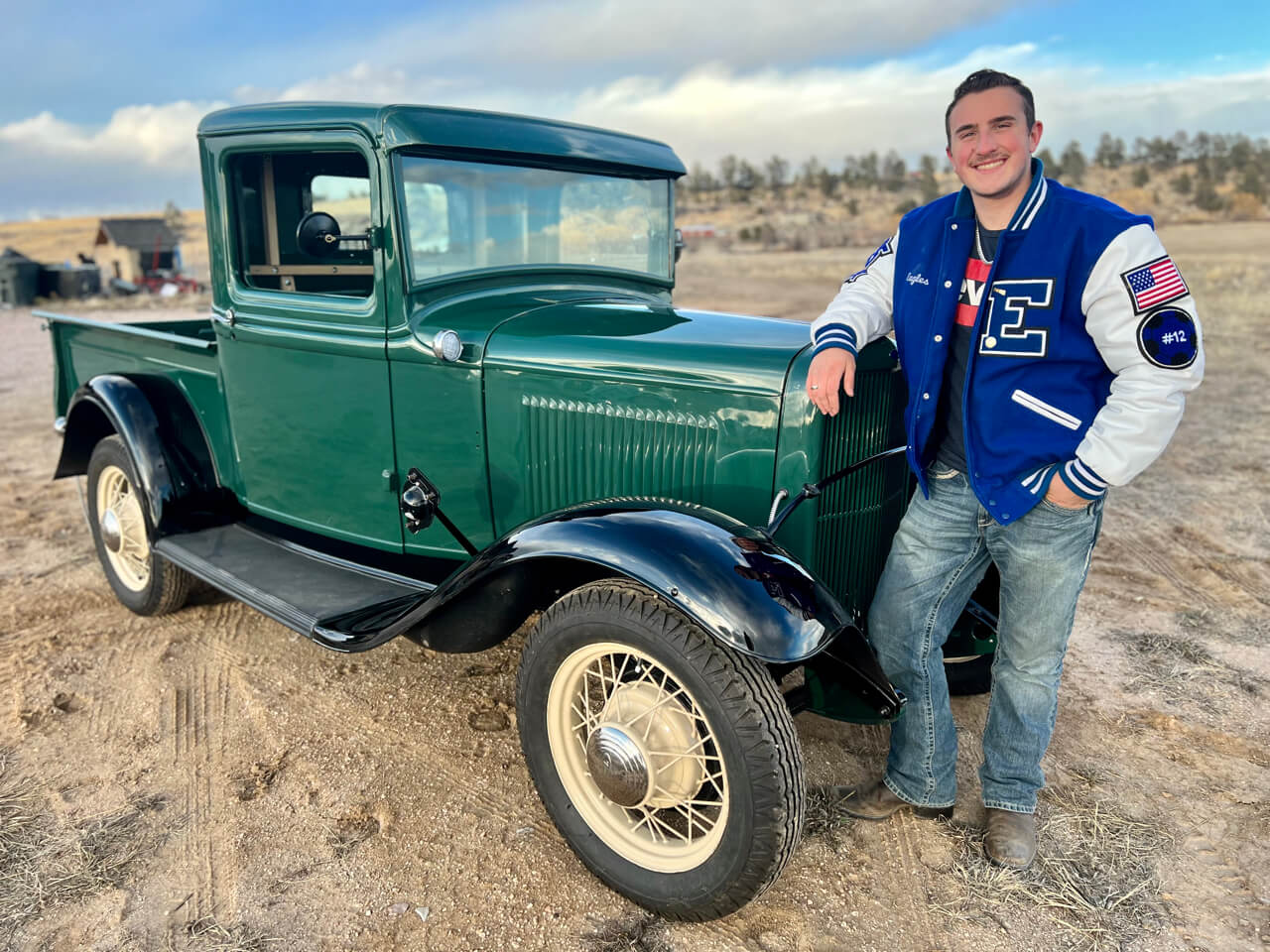The Classic Car Academy in Belgium
Nico Bourgois lives and works in Belgium, where he is teaching classic car restoration techniques. The Piston Foundation was fortunate enough to talk with him to learn what he’s doing, how much his mission overlaps with that of the Piston Academy, and how the restoration craft unifies people no matter where you live in the world.
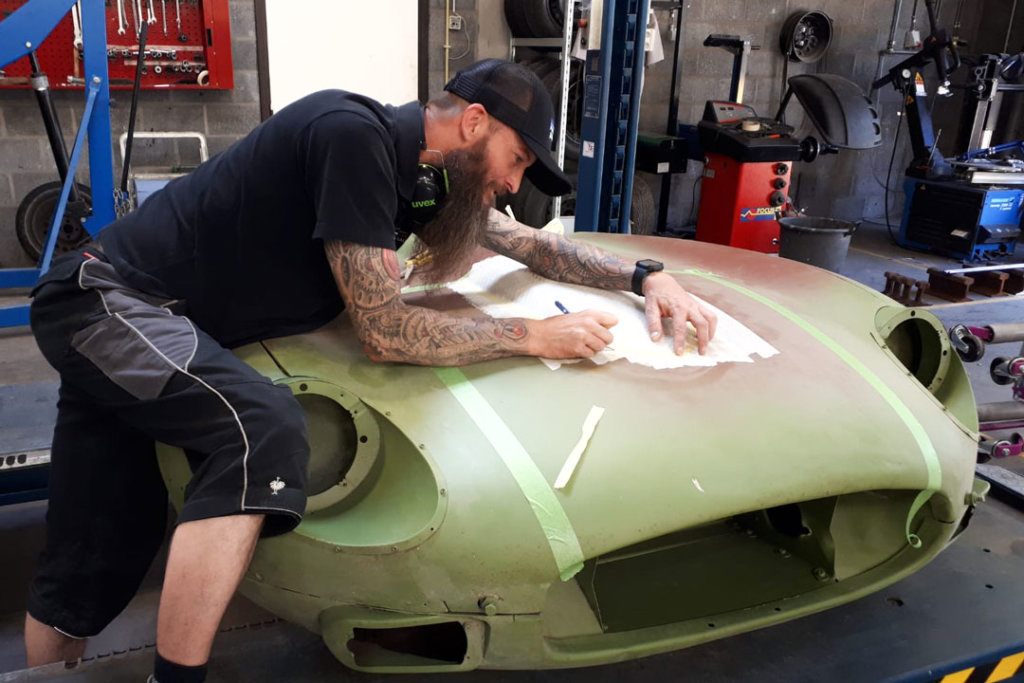
By jeff mason
June 2, 2021
[addthis tool=”addthis_inline_share_toolbox_a1tk”]
What is the Classic Car Academy?
The Classic Car Academy is the school I started to teach people how to use hand techniques and the old machines, like the English wheel and power hammers. I want to get people interested again.
I’ve been a technical trainer for the last 20 years. My focus is on the body side of things. My mate is teaching on the mechanical side and, in the future, if everything turns out as I would like, he can join me in the school. It’s not so easy to be doing all the work for a startup by myself.
Who are you teaching now?
For now, I’m mostly teaching people who like to do this work as a hobby, albeit professionals are also committed to the classes. Since I’m still working full time, academy classes are held on weekends. COVID limited our class size to five people, so I had to put some people on a reserve list. But, I found that five is the ideal number for coaching. More is too much because I can’t give everyone enough attention.
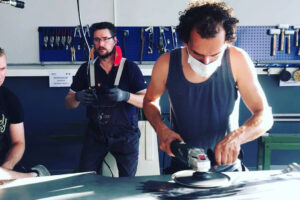
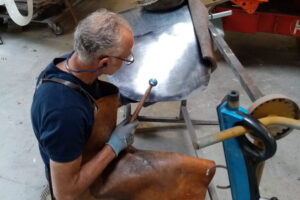
Most of my students will stay with this work as a hobby but some are professionals in body shops who would like to learn the old techniques so they can repair again. For the last 20 years, the job has been about buying body parts and changing them instead of repairing. For sustainability reasons, we should consider repair and doing the job correctly.
Are there restoration shops that are doing incorrect work?
Some of them are, as in any business. Luckily after some time you get to know the ones who are passionate about their work and do a great job.
The Piston Academy is developing a similar educational experience, where those with some education can apprentice to learn the trade at a level the industry needs for quality restoration work. There are two approaches to such a school: a physical location for a school or multiple locations where apprentices learn at participating shops.
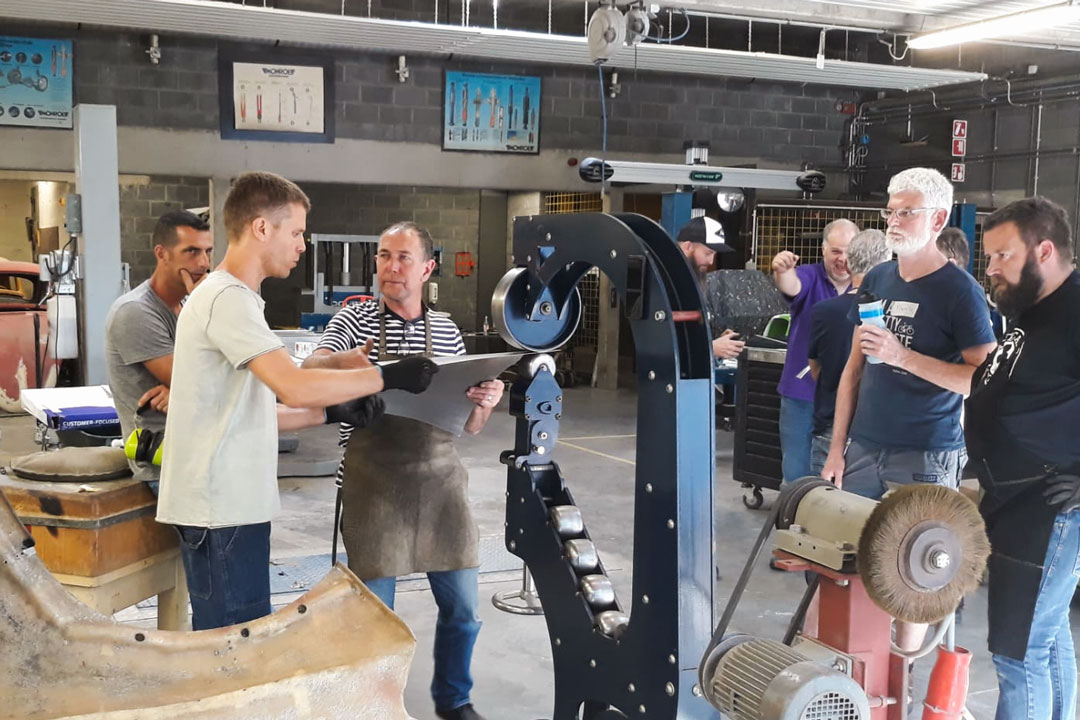
What are your thoughts on this choice?
Financially, it could be better to work with existing shops. I think that only high-end shops would be willing to participate, which would be good to ensure quality teaching. In a previous job as a technical trainer/consultant, I was responsible to train all the Belgian and European students that came to us. What I noticed was that, even between trainers, there was a lot of difference in quality even though we set a high standard. You have to be on it all the time to maintain a level of quality.
On the other hand, a school can cost a lot of money. It’s easier to control quality but you still have to be on top of it. And for participants, they must travel. I have that same problem now. There are people in France who want to learn with me but COVID restrictions are there, too, like Belgium. That and the extra cost keep a lot of them away. Even within Belgium, which is a small country, if a student has to drive more than an hour, some say it’s too far.
What is the attitude toward car culture in Belgium today?
We focus on cars less and less. People see them as a tool for transportation. I noticed that about myself; I have no interest in my daily car. It’s boring. And congestion is so bad that it’s nice not to drive. But, I drive a classic car and my interest is back again.
With youth, their focus is often on mobile phones and not the car. Most of my students are more than 40 years old, though I had a younger student about 30. And, a father is bringing his two teenage sons because they are interested in classic cars.
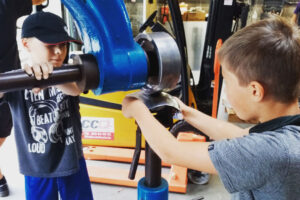
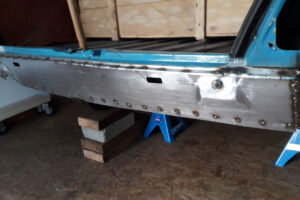
You seem to have a diverse student body.
Yes, a broad range of people come to learn.
English is my third language. My first and second are Dutch and French. That helps a lot but we find common ground in the work. Language becomes less important as we share our passion. In one training session, I was using French and Dutch because there was only one French-speaking guy. We became a team toward the end of the course. You can see people opening up as they share the car.
The class still has the What’s App group and we still write, mostly in Dutch, but also in French. And the French student tries to understand.
In Belgium, the media speaks about friction between the French and Dutch communities. But, after teaching and experiencing what we have, I’ve come to the conclusion that the conflict is only politicians playing games with us. As people, we don’t have problems and we could come together.
Also, as a trainer, I get to know a lot of people. If we are another color or race, we don’t mind. We have the same passion and can speak about it together. The car brings us together.
How are you spreading the word about the academy and sharing information?
I’ve been organizing metal meets in Belgium. Professional and hobby metal workers come together to shape parts and teach one another. Everyone learns.
We also have videos on YouTube. They’re simple but show some important skills.
In America, trades people don’t usually get a lot of respect for what they do. What is it like in Belgium?
Same here. If you work on cars, people think you’re not too smart. You need a lot of skills to work on a car and really have to know a lot. Maybe it’s a worldwide problem.
I think everyone can learn to do this work if you have someone good to teach you. I’m convinced you just have to be stubborn enough to keep going.
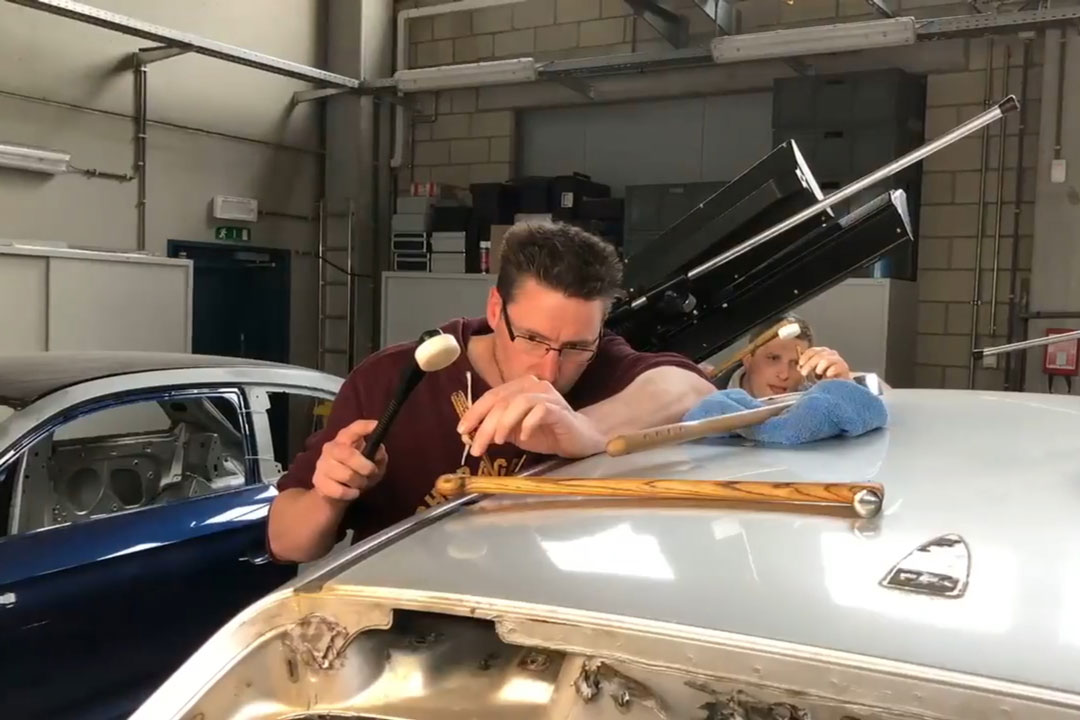
Donate
Today
Support skilled trade education for future auto restoration technicians.
Campaigns
Give to What You Love
Make a gift that helps the next generation access the education and training they need to begin a career as a classic car technician. Gifts of any size are appreciated and will be used to fund our scholarship and apprenticeship programs.
Sponsor a Piston Scholar
Piston Foundation scholarships are awarded to aspiring technicians to help them begin an auto restoration career. Give to the car culture you love. 100% goes to fund scholarships.
Cars for Piston Scholars
Turn your collector car into education and hands-on training for aspiring collector car technicians. Your car can change lives. 100% goes to fund scholarships.
Give to What You Love
Make a gift that helps the next generation access the education and training they need to begin a career as a classic car technician. Gifts of any size are appreciated and will be used to fund our scholarship and apprenticeship programs.
Sponsor a Piston Scholar
Piston Foundation scholarships are awarded to aspiring technicians to help them begin an auto restoration career. Give to the car culture you love. 100% goes to fund scholarships.
Cars for Piston Scholars
Turn your collector car into education and hands-on training for aspiring collector car technicians. Your car can change lives. 100% goes to fund scholarships.
Subscribe
Sign up for our monthly email with stories, updates, and volunteer opportunities.

